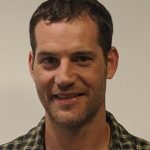Abstract:
Batteries have transformed our daily lives and hold the key to a low carbon future. Yet, current Li-ion chemistries are approaching their theoretical performance limit. Remarkably, we continue to rely on a limited subset of Li-ion battery materials –– most commercial cathodes derive from LiCoO2 developed in 1980 –– that cannot meet our ever-growing need for energy storage. The development of more sustainable, energy dense, and safer batteries hinges on designing new cathode chemistries and crystal structures that depart from the traditional layered lithium transition metal oxides, as well as non flammable solid electrolytes.
In this talk, I will present our work combining solid-state NMR, first principles simulations, and other advanced tools to relate synthesis, structure, and properties in various classes of battery materials. For example, our work on Li-ion rocksalt oxyfluoride cathodes emphasizes the importance of 7Li/19F solid-state NMR to determine the true composition of such systems and establish robust materials design rules, and introduces a new, rapid and energy-efficient synthesis procedure to obtain those materials. I will also present our work on weberite-type Na-ion cathodes, which offer an attractive alternative to the lithium technology, particularly when combined with Earth-abundant redox-active species such as iron. Finally, I will discuss our work on Li- and Na-ion conducting rocksalt halide solid electrolytes, highlighting their high propensity for polymorphism and for the formation of planar defects, with resulting structural and ion conduction properties that can be modulated by changing the synthesis conditions.
About the Speaker:
Raphaële Clément is an Assistant Professor in the Materials Department at the University of California Santa Barbara since 2018. She received her Ph.D. in Chemistry in 2016 from the University of Cambridge, working under the supervision of Prof. Clare Grey. She then joined the group of Prof. Gerbrand Ceder as a postdoc at the University of California Berkeley. At UCSB, the Clément group is interested in establishing materials design rules, and in optimizing materials processing approaches to advance electrochemical energy storage. The group’s expertise lies in the development and deployment of magnetic resonance techniques (experimental and computational) for the study of battery materials and beyond, with a strong emphasis on operando tools. She received an NSF CAREER award in 2022, the Materials Today Rising Star Award in 2023, as well as the ISE Prize in Electrochemical Materials Science from the International Society of Electrochemistry. She is a Topical Editor for ACS Energy Letters.


